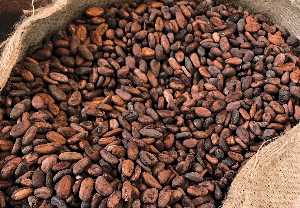By Dr. Akin Adesina
In times of food and farming crisis there is a tendency in Africa for policy makers to adopt reactionary measures that routinely make things worse, not better.
A number of African countries have often resorted to ad hoc policy making – putting in place, for example, short-term bans on agricultural products that impede trade, disrupt market, and hurt farmers. There also is a tendency to blame price increases not on long-term structural problems, such as poor infrastructure, lack of credit and information systems, but on the unethical actions of traders and middlemen - a policy stance that can be counter-productive to finding long-term solutions to food insecurity.
And as we wrestle with yet another spike in food prices across the continent, the temptation to resort to politically convenient, but often counter-productive measures, is strong.
Instead, African governments should use this crisis as an opportunity to consider long-term policies that can help farmers generate higher yields and put more food on the table of the African people, while exploiting the price hikes to increase farm incomes.
The reality is that instead of depending on externally driven, well-intended policy advice that sometimes leads to less than desirable outcomes, Africa needs homegrown, evidence-based policies that are focused on farmers and food security. For example, farmers’ demand for improved seed in Ghana as well as in other West African countries has been growing each year. Yet policy makers in some countries have failed to respond to the demands of farmers by liberalizing the sector in a way that allows increased seed production. As a result, the potential gains from dozens of new crop varieties developed and released each year by scientists funded by the government, AGRA and other donors have been undermined and many of these advances have remained out of reach for many of our farmers.
Ensuring that government investments are prioritized towards transforming farming across Africa will require building a new cadre of evidence-based policy analysts and advocates at our universities and research institutes, and then connecting these experts with policymakers in our governments and ministries as well as parliamentary committees on agriculture. Working together with farmer organizations and civil society, the policy analysts can advocate for policy reforms that enhance and sustain farm growth.
These policy analysts and advocates will conduct analyses on a wide range of issues, including for example, the impact of insecure property rights on farmers, or the sustainability of irrigation schemes on local water supplies, and advise government policy makers on the most appropriate and effective actions to take to mitigate the negative impacts of such interventions. They also will ensure that those actions are consistent with the policy and investment framework that has been put in place under NEPAD’s Comprehensive Africa Agriculture Development Programme (CAADP).
Ghana has made tremendous progress in recent years, which is the result of strong leadership, good governance, and collective will. This progress creates an opportunity for the government and other partners to invest in policies that support agriculture as a trigger for economic growth and stability, and put farmers first—now and in the future.
The establishment of the Ghana Policy Hub, a new, innovative policy analysis and advocacy initiative is a critical first step in making the dream of a sustainable African Green Revolution a reality.
The author is the Vice President, Policy and Partnerships for the Alliance for a Green Revolution in Africa(AGRA), an Africa based organization working in partnership with governments, agricultural research organizations, farmers, private sector, civil society and other rural development stakeholders to significantly and sustainably improve the productivity and incomes of resource poor farmers in Africa. Funded initially by the Rockefeller Foundation and the Bill and Melinda Gates Foundation, AGRA is chaired by Kofi Annan and has its headquarters in Nairobi, Kenya. (www.agra-alliance.org).
Opinions of Friday, 29 April 2011
Columnist: Adesina, Akin














